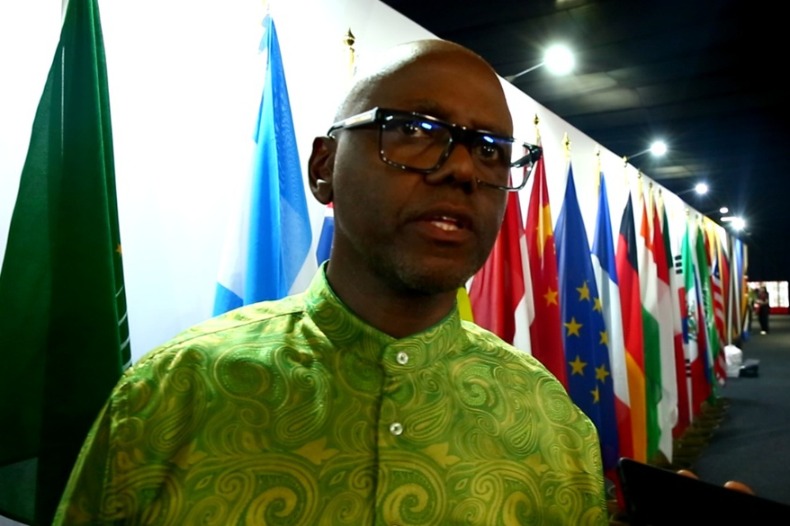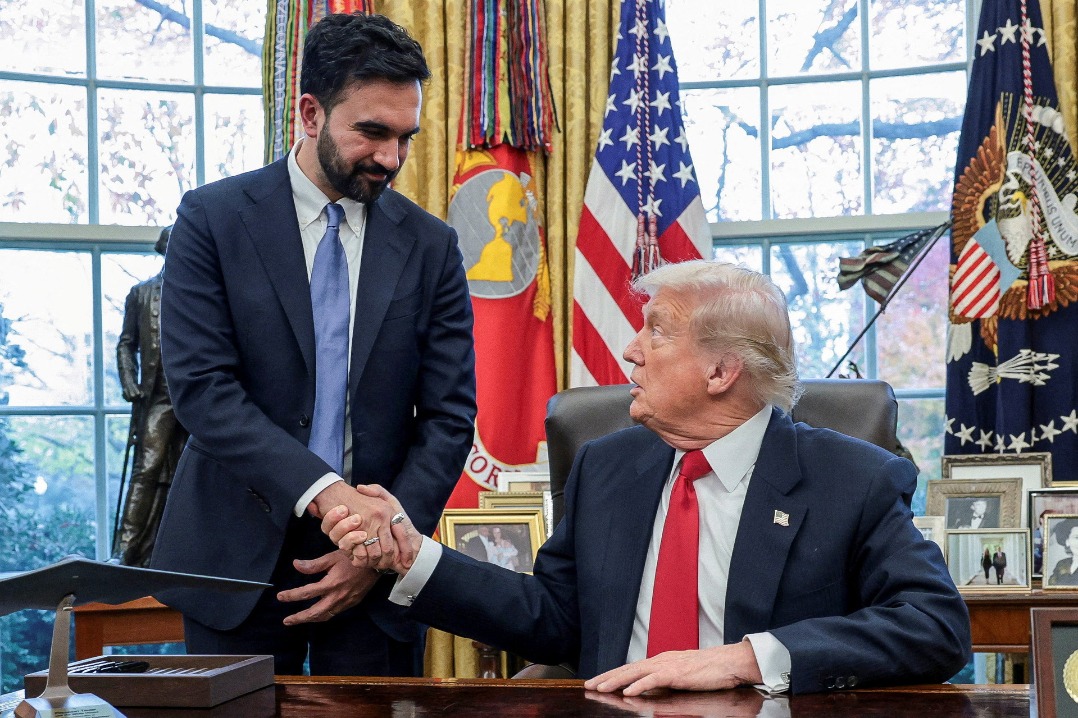New US-led blocs may backfire


Alliances force nations to take sides, pay to secure Washington's hegemony
Editor's note: China Daily presents a series of in-depth reports to analyze how exclusive blocs create divides, conflicts and setbacks in the world, and how the greater international community works to shore up unity, peace and development.
This year, the administration of US President Joe Biden has added a number of new phrases to its vocabulary as it works hard to set up exclusive blocs or alliances, through moves such as "friend-shoring"-which involves the United States and its allies building a limited production and supply chain which excludes nations they oppose-and promoting the CHIP 4 semiconductor and chips alliance.
However, many policy observers, particularly those in countries allied with the US, have expressed their strong skepticism or objections to such alignments, as they only serve to expand US interests and force nations to take sides while offering fewer benefits than those originally promised by Washington.
These ambitious plans may also end up backfiring even for the US itself, some experts added.
Six months on from the outbreak of the Ukraine crisis in February, Washington is busy working on several fronts, as it prompts its allies to offer more assistance to Ukraine or to denounce China's military drills around its island of Taiwan, while also lobbying allies such as South Korea to join economic blocs to build new production and supply chains in favor of the US and steer themselves away from China and Russia.
"The US tends to use its diplomatic power to pressure allies to back its policy as it did with its sanctions on Huawei," said Suh Kyoung-ho, an editorial writer at the South Korean newspaper JoongAng Ilbo.
"Seoul must listen to the voices of South Korean companies and the Ministry of Trade, Infrastructure and Transport in order to prioritize the economic interests of the country," Suh wrote on Aug 8.
In an interview with Russia's TASS news agency last week, Chinese Ambassador to Russia Zhang Hanhui said, "The US is the source of the rising instability and uncertainties in the world".
Washington is "piecing together Cold War style blocs" and "actually fighting another variant of the Cold War", as it fueled the Ukraine crisis and US House Speaker Nancy Pelosi made a provocative visit to Taiwan, Zhang said.
Beijing blasted Washington on Monday for "having never ceased to engage in political interference and manipulation worldwide" and noted that the US has even tried to build "small circles" in economic and technological fields.
Monday marked the first anniversary of the "Kabul Moment"-Taliban's return to power amid the withdrawal of US troops from Afghanistan last August.
"The 'Kabul Moment' also marks the failure of the US' favored approach of mustering small exclusive groups. The US and its allies had occupied Afghanistan for 20 years, only to flee it in a botched withdrawal," Foreign Ministry spokesman Wang Wenbin said on Monday.
Fighting against the trend of the times "will only lead to more 'Kabul Moments'", he added.
Hu Jiping, vice-president of China Institutes of Contemporary International Relations and a veteran expert in East Asian studies, said the US is actually building ideology-based blocs in economic fields as it is busy lobbying some of its allies to rebuild production chains.
"In order to secure its comparative advantages and hegemony, the US even sabotaged the rules it stipulated. Its policies are increasingly aggressive, and it ignores balance at a strategic level. And this approach shows its strategic arrogance," Hu said.
During her trip to Asia last month, US Treasury Secretary Janet Yellen, without naming China or Russia, actively promoted the concept of "friend-shoring", saying that countries could build limited networks for trade in essential or complementary goods, bypassing the risks presented by relying on "unfriendly" countries.
Colin Mackerras, a professor at Griffith University in Australia, said the US should aim to foster cooperation instead of boosting ties with particular countries while excluding others.
"A reasonable grouping would best include China, not exclude it," Mackerras told Al-Jazeera. "We should work together to solve problems, not compete."
Blocs set to backfire
On May 23, the US launched the Indo-Pacific Economic Framework for Prosperity together with Australia, Brunei, India, Indonesia, Japan, South Korea, Malaysia, New Zealand, the Philippines, Singapore, Thailand, and Vietnam, representing what it claims as 40 percent of world's GDP.
The White House claimed that the IPEF would create "a stronger, fairer, more resilient economy for families, workers, and businesses" in the US and nations in the Asia-Pacific region.
"However, behind Washington's recent drive to build various kinds of alignments and blocs is its great anxiety to secure American hegemony, and it needs its allies to split the costs economically and geopolitically to achieve this goal," said Su Xiaohui, deputy director of the China Institute of International Studies' Department of American Studies.
"Building new small circles and making them part of the US' greater alliance architecture is not meant to benefit these allies but serve the very interests of the US itself. Just like NATO and the G7, these new blocs also serve the 'America First' principle," she said.
Doug Fuller, an associate professor of Asian and International Studies at City University of Hong Kong, said the narrow scope of export controls sought by Washington against China has maintained an international coalition of businesses, but this coalition is fragile.
"Proposed legislation from Congress to block wider swathes of Chinese industry from access to technology threatens to undermine it," Fuller said in an article in a recent edition of the East Asia Forum Quarterly.
The US' proposals for tighter multilateral controls of the semiconductor technology "have met with little enthusiasm and much passive resistance from South Korea and Japan", Fuller added.
Observers said Washington's obsession with building exclusive alignments based on unilateralism contrasts sharply with the lasting belief of countries such as China in multilateralism and welcoming benign competition.
Liu Chong, director of the Institute of International Security of the China Institutes of Contemporary International Relations, said the exclusive alignments sought by the US "are not the 'big family' or partnerships that countries like China seek to build for common security and progress of the whole of humanity".
"While the US-led alignments introduce exclusive technological standards that add to inequality and unfairness and undermine regular international economic and security cooperation, China welcomes benign competition and agrees to let the technologies of different countries compete fairly in the world," Liu said.
Wang Yiwei, a professor at the School of International Studies and director of the Institute of International Affairs at Renmin University of China, said, "Those subscribing to unilateralism always believe that they stand on the right side of history, and they tend to make mistakes."
































